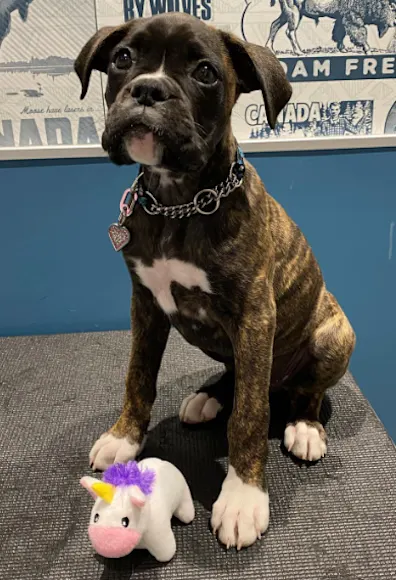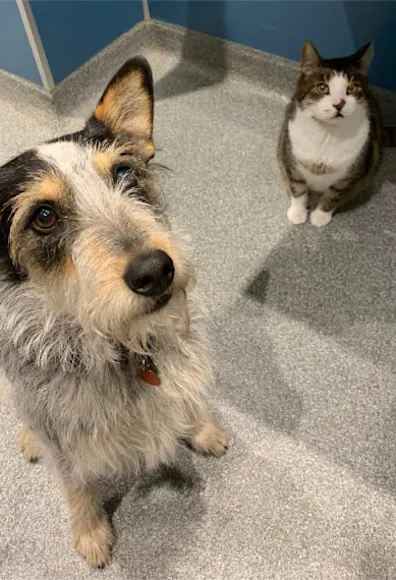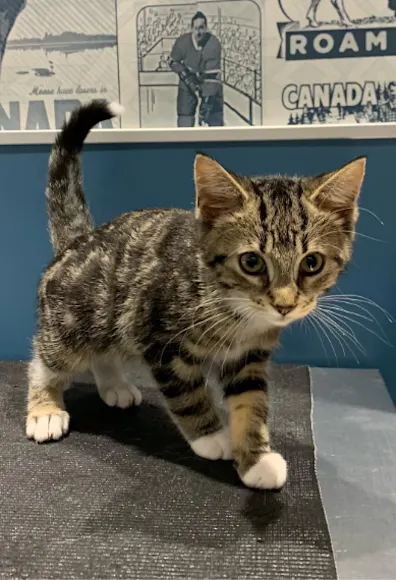Queen West Animal Hospital

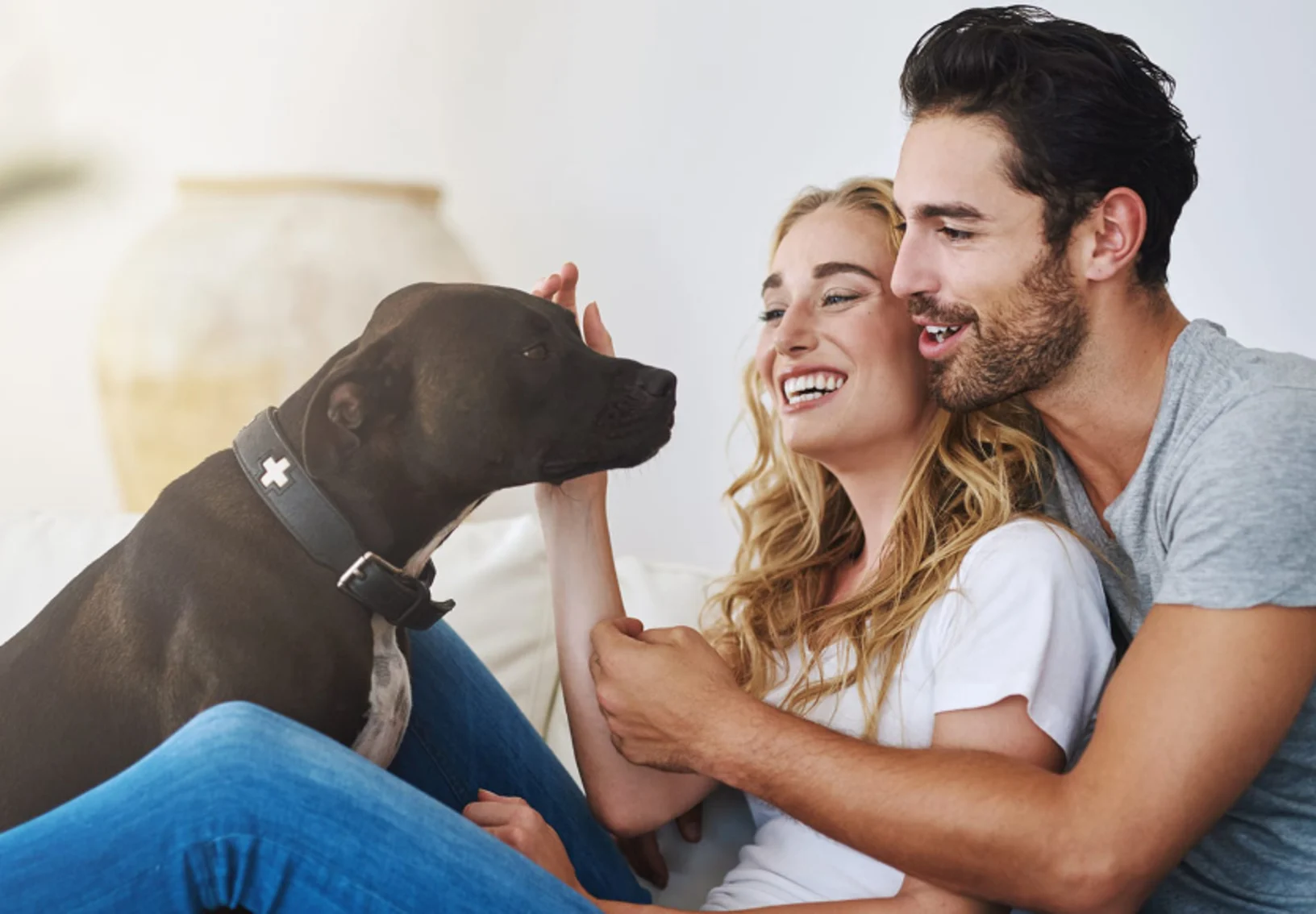

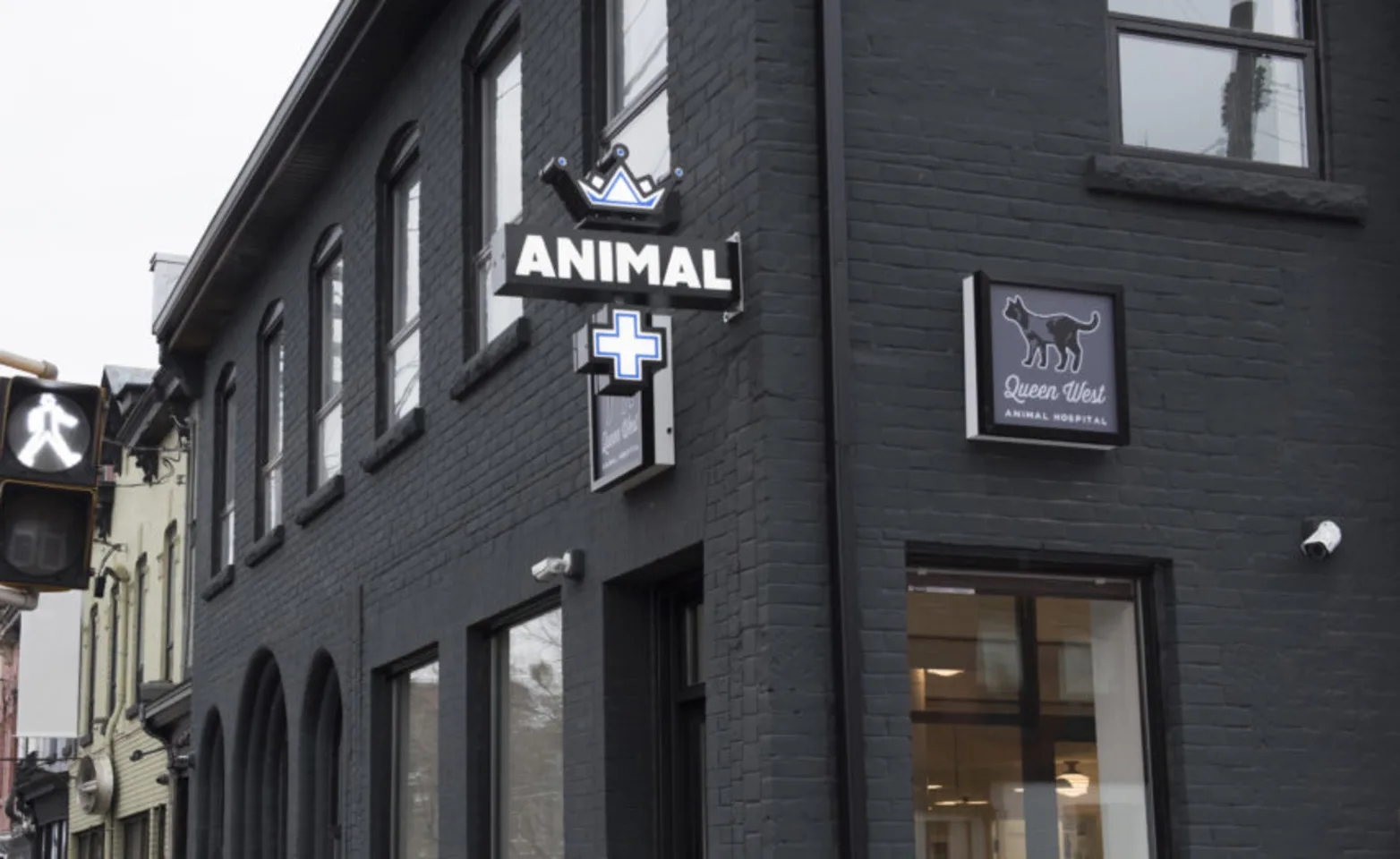
Our Hospital
Queen West Animal Hospital is operated by a dedicated veterinary team. The clinic provides a comprehensive range of on-site services. We take pride in delivering exceptional medical and surgical care for your pets, as well as outstanding customer service. At Queen West, we treat your pets with the same care and attention we would give to our own.
After nearly two decades next door, we’re now located fourteen feet away at 931 Queen Street West. We have added many new and exciting services to our new facility, as well as, expanding the size of our hospital from 1500 to 4000 square feet.
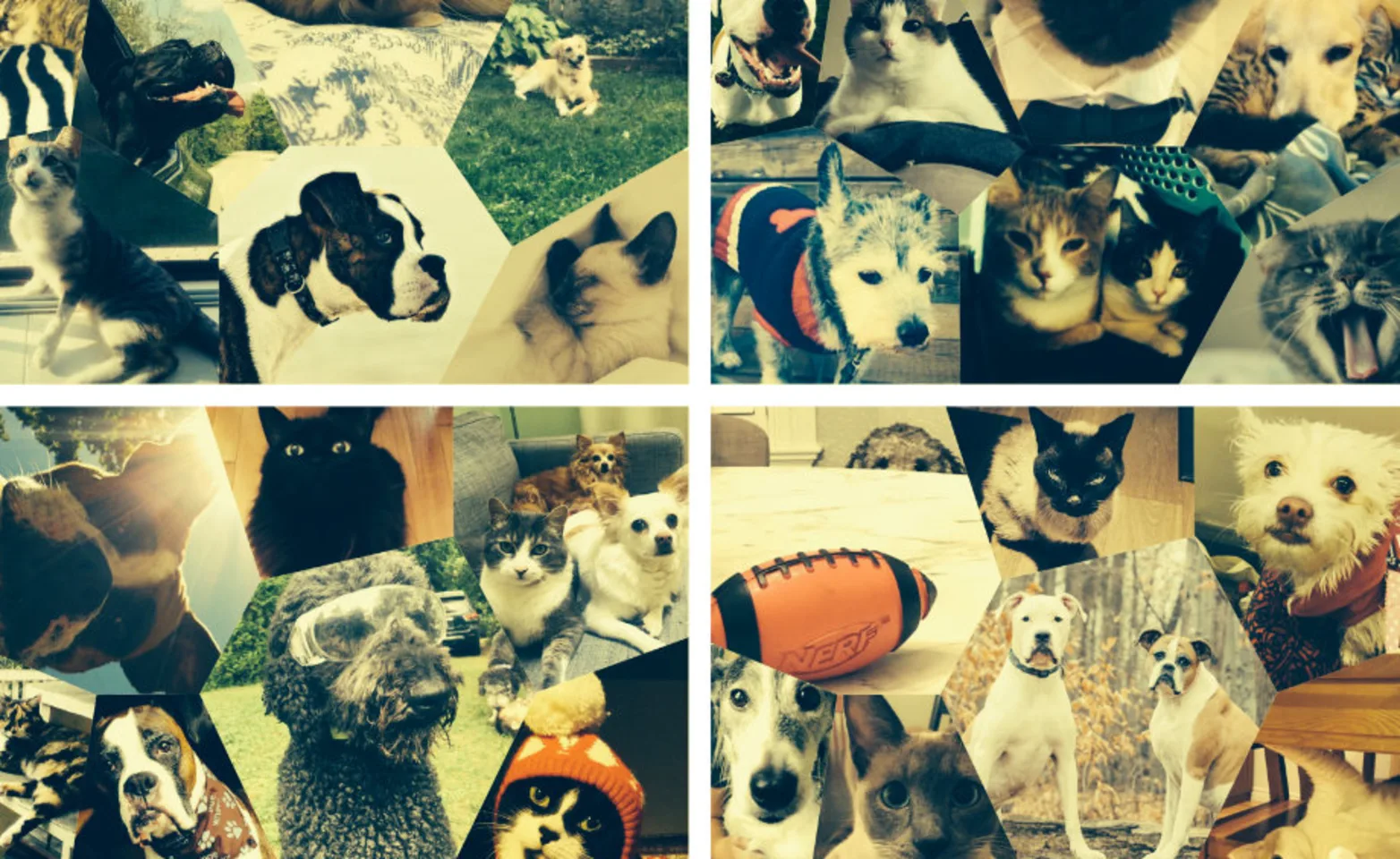
Our Customer Service
As a client of our veterinary hospital, you can expect our full attention to your pets’ needs. We believe our customer service-focused approach to client and patient visits is what sets us apart from other veterinary hospitals. Feedback from clients continues to support this belief.
Additionally, depending on the day, we provide services fluently in the following languages: Cantonese, Portuguese, Serbo-Croatian, and French.

